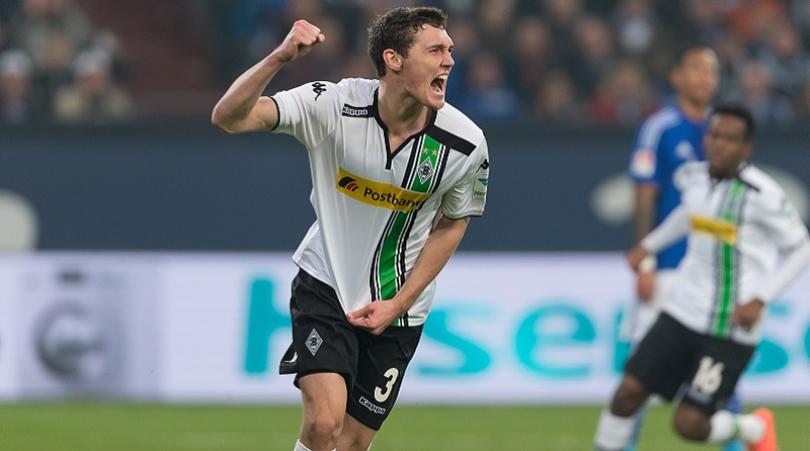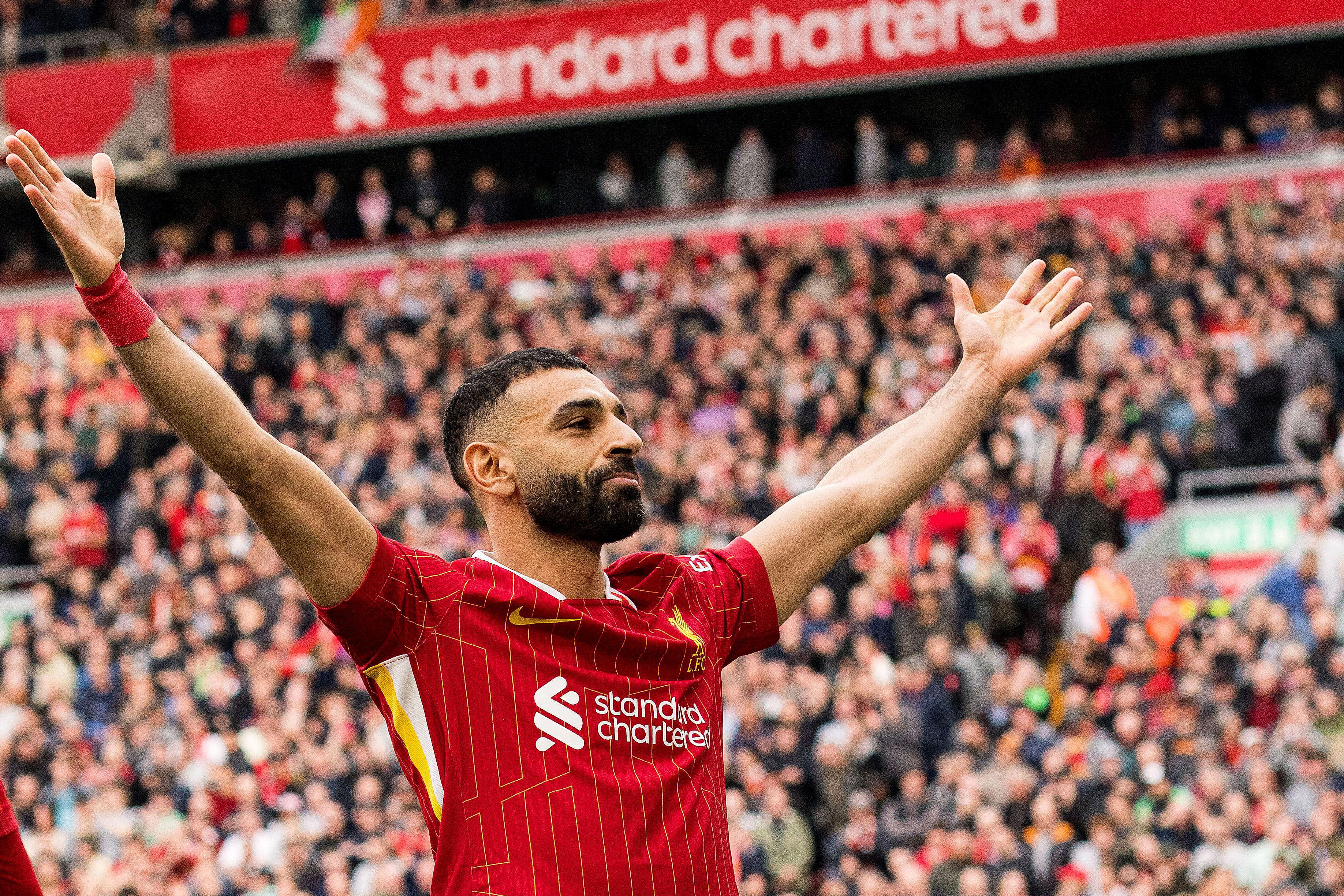Chelsea's academy risks losing appeal as youngsters continue to be ignored
The Blues may need to sacrifice immediate success if they're to take player development seriously, writes Seb Stafford-Bloor...
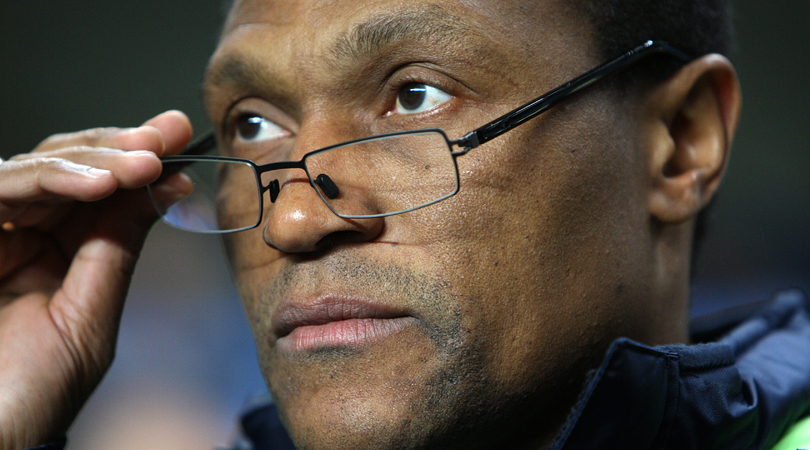
"The owner wants it, the first-team coach wants it, the academy manager wants it, I want it, the board want it – everybody wants this to happen."
The words of Michael Emenalo, Chelsea's technical director, discussing the club's intention to open the pathways between the youth academy and first team.
Elsewhere in that Mirror interview, Emenalo makes reference to the pockets of fertility within the Chelsea youth setup and of having to quell the concerns of worried parents who are beginning to question whether Cohham is a black hole for developing talent.
The owner wants it, the first-team coach wants it, the academy manager wants it, I want it, the board want it
Those mothers and fathers are absolutely right: rather than being a legitimate stepping stone, Chelsea have become a holding pen for young players. They sign long contracts, they spent the majority of that time on loan or dismantling inferior teams in the sanitised under-21 league, and then they float aimlessly into the game's ether.
Credit to Emenalo for wanting to change that, but it's important to recognise that, to do so, he will need the proper support of everyone around him. Becoming self-sufficient at Chelsea's level of the game isn't as simple as just having a broad scouting network and identifying ability, it requires a top-down acceptance of the associated time lags.
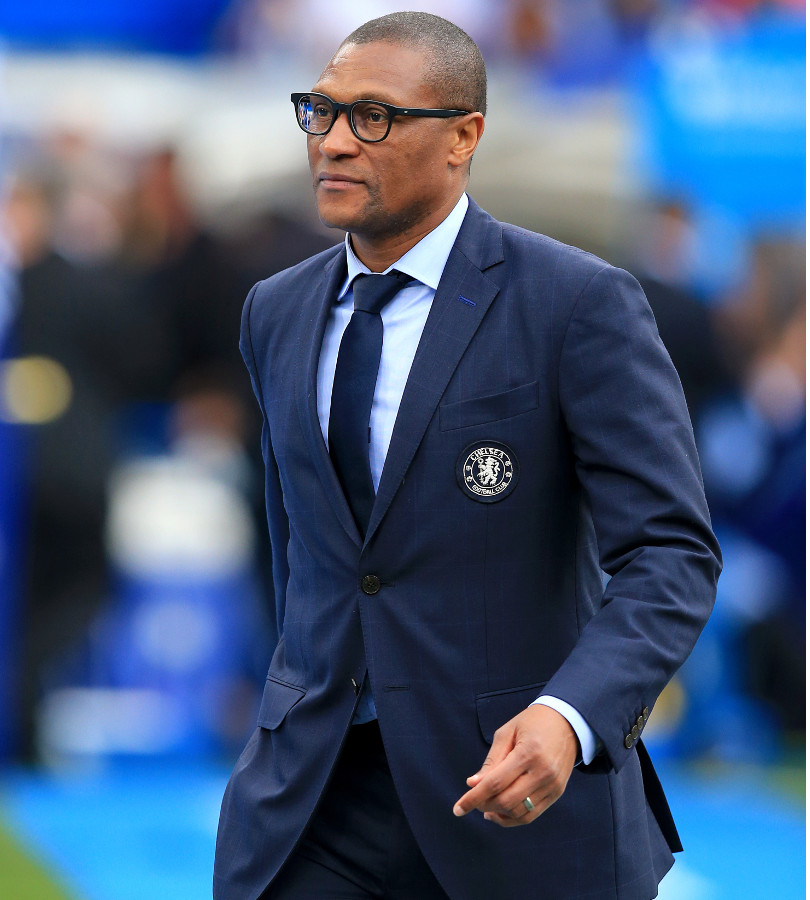
It demands that, at some point, short-term success will almost certainly have to be sacrificed for the benefit of the future and, as yet, there's no visible proof which suggests that such a mentality exists at Stamford Bridge.
One step forward, two steps back
Get FourFourTwo Newsletter
The best features, fun and footballing quizzes, straight to your inbox every week.
A case in point is Ruben Loftus-Cheek. With Chelsea's season over, Guus Hiddink is rewarding the young midfielder with regular game time. It's handy experience, of course, but also an advert – one presumably imagined with the intention of presenting an altered reality.
Nainggolan is a very good player, but he provides an example of the problem the club faces: they can't have it both ways
Loftus-Cheek deserves to be there and, presumably, his visibility will help Emenalo to calm some of those troubled parents. Simultaneously, however, media reports suggest that Chelsea intend to pursue Roma's Radja Nainggolan in the summer.
While the club are talking up their newly holistic approach, they are also quietly writing the cheques which will ensure that they remain on the same path. The Belgian is not stylistically comparable to Loftus-Cheek, but at 27 and in his prime, he will – if signed – block out another place in the team and push another emerging player into League Cup purgatory.
Nainggolan is a very good player and exactly the sort who a club with Chelsea's ambition should be targeting, but he provides an example of the problem the club faces: they can't have it both ways. Either they are properly committed to reaping what has been sewn in their academy, or they are determined to promote their season-on-season competitiveness by sourcing off-the-peg upgrades at enormous expense.
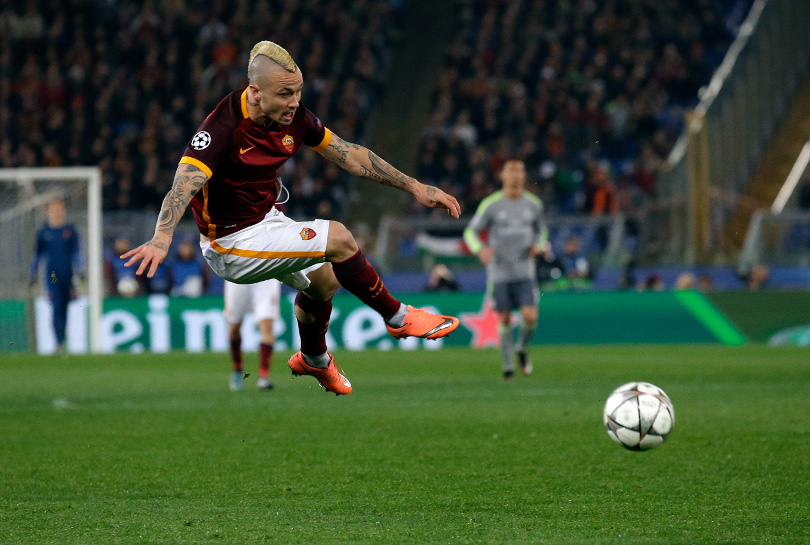
A Nainggolan-type player obviously comes with a significant benefit – that goes without saying – but consider the message it will send. For someone like Loftus-Cheek, or the similarly talented Lewis Baker (currently on loan at Vitesse), it represents the slamming of a window.
Nainggolan, like Cesc Fabregas before him, would allow Chelsea to achieve more now, but at the cost of burying the potential influence of someone who is already at the club. Maybe that kind of signing could be presented as a stop-gap solution, or one made until such a time when these young players are definitively ready for the first team, but that's an argument which can be made forever.
In three years' time, there will be another £30m signing. And then another. And then three years after that, whoever occupies the manager's office will claim that to achieve immediately, he can't take risks with players who are still learning the game. With a little more patience from all parties, perhaps Chelsea wouldn't have offloaded both Kevin De Bruyne and Romelu Lukaku so prematurely.
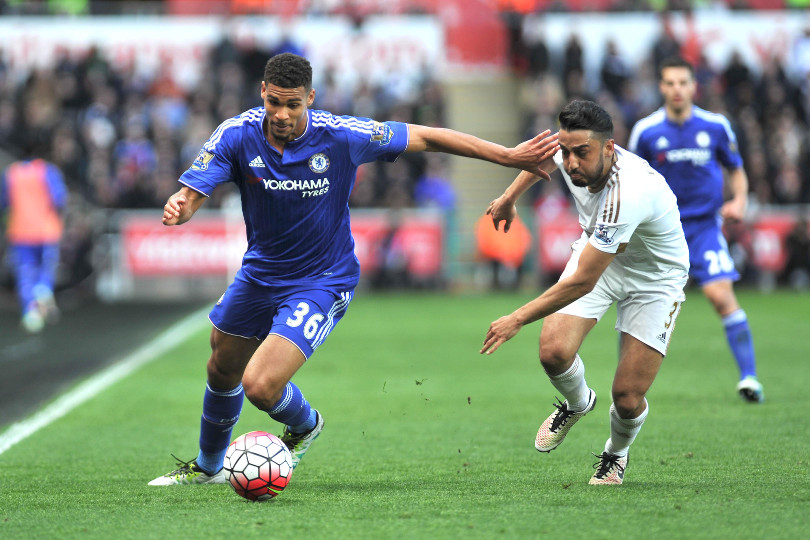
Stifling development
If there's an appetite for reform, then, it must come from the top of the club
There's no moral issue involved and Chelsea are entitled to operate in that way if they have the means and resources to do so, but that approach cannot run parallel to anything remotely organic. Really, it's just a way of inadvertently salting the earth and ensuring that nothing can ever really grow.
If there's an appetite for reform, then, it must come from the top of the club. If Roman Abramovich can tolerate two or three years of transition and accepts that a price has to be paid now for a more self-sufficient future, then that would provide a mandate for the kind of change which Emenalo is apparently driving towards.
In that aforementioned interview, he also rejected the claim that Tottenham have become a preferable destination for the game's next generation. In his words, Harry Kane is the only notable home-grown player and the domestic evolution at Hotspur Way is being exaggerated.
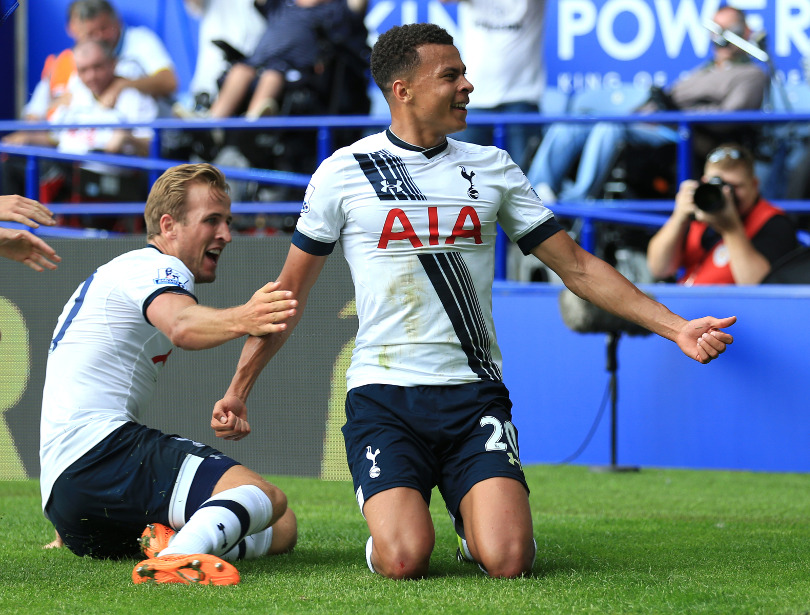
Maybe, but the key difference between the two clubs is that at Spurs, being a young player doesn't carry a stigma. Had Dele Alli moved to south-west London rather than the capital's north last year, would he have been given so much as a few cup games and pre-season friendlies to state his case for inclusion, or would he have been immediately sent to a satellite club and forgotten about?
A reasonable guess would be that, had he been owned by Chelsea, he wouldn't have played for England, he wouldn't have made the PFA's team of the year, and he wouldn't have made the exponential improvement that he has.
A reasonable guess would be that, had Alli been owned by Chelsea, he wouldn't have played for England, he wouldn't have made the PFA's team of the year, and he wouldn't have made the exponential improvement that he has
He would, for want of a more conciliatory phrase, have wasted a year of his career. Player development is an imperfect science and no 16-year-old can ever be guaranteed passage into the professional game, but some clubs are far more tolerant of that process than others.
Losing faith
That's the real distinction: while Mauricio Pochettino has a mandate to take risks and has been actively encouraged by his chairman to grow young players, no Chelsea manager has been afforded the same privilege during their modern era.
You never know about the future, but it's possible that I can stay. It's better to play here than in Chelsea's second team
Chelsea are not Tottenham and, in a normal year, they would be hunting at a higher level of the food chain. Spurs operate as they do because of the financial restrictions placed upon them, so this is something of a false comparison, but the two clubs are still diametrically opposed in their respective approaches to progress.
No matter how deep Abramovich's pockets are, he must still be mindful of the growing associations with his club. Recently, Charly Musonda – a fabulously gifted attacking midfielder on loan at Real Betis – spoke of his desire to remain in Spain rather than return to England.
"I'm happy here, the Beticos want me," he said. "You never know about the future, but it's possible that I can stay. It's better to play here than in Chelsea's second team."
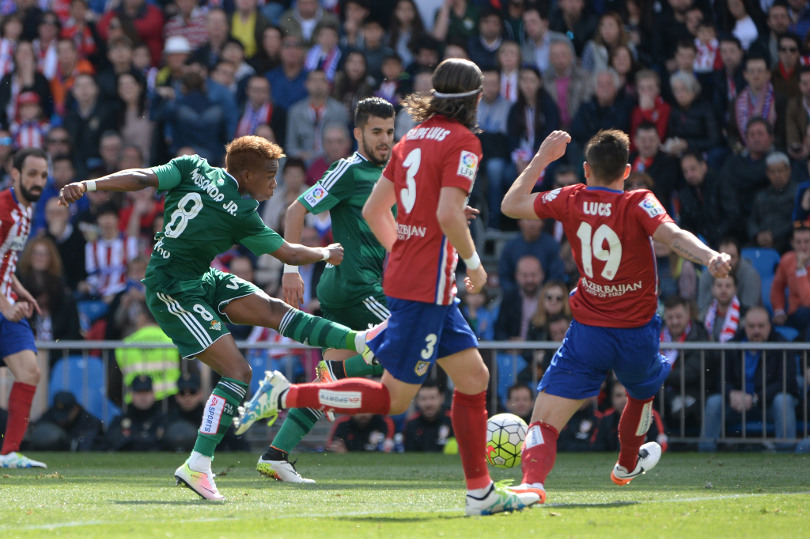
Musonda was referring to a second loan spell rather than a permanent transfer, but it was still a comment which made a highly pejorative statement about a young player's life at Stamford Bridge. Despite being notably impressive in La Liga, the player evidently has no faith in that leading to promotion or opportunity.
Whether that's true or not, it's alarming that he seems to believe it so wholeheartedly – and that he was prepared to say it so publicly.
Yes, Chelsea have the resources to attract players of that quality at any time, but it's important that they retain the ability to recruit them as teenagers – even if only for the financial savings. Parents and agents are ambitious and they want their clients and children to have big-club security, but they also know that careers rely on opportunities and that it's better to play for a lesser side than it is to merely train at a superpower.
Chelsea can afford not to care. But, if they want to construct the kind of dynastic success which isn't reliant on the transient nature of the modern game, they must understand why their pathways are cluttered, not just recognise that they are.
"Roman, we might not win this year, but that's OK because..."
No, that won't be an easy conversation to have with Abramovich, but it will be necessary if Chelsea are ever to evolve into more than just a market-place predator.
Seb Stafford-Bloor is a football writer at Tifo Football and member of the Football Writers' Association. He was formerly a regularly columnist for the FourFourTwo website, covering all aspects of the game, including tactical analysis, reaction pieces, longer-term trends and critiquing the increasingly shady business of football's financial side and authorities' decision-making.
